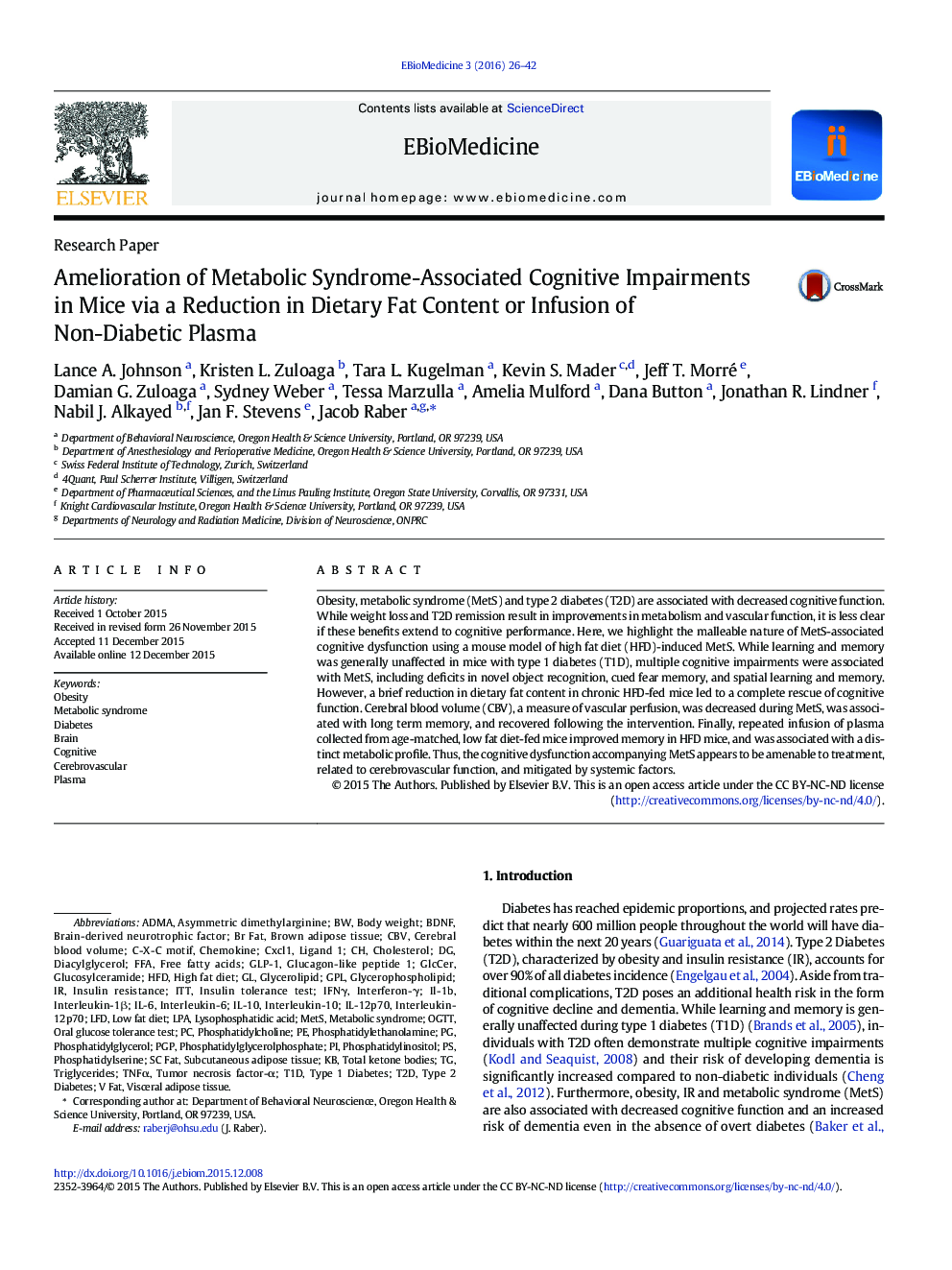| کد مقاله | کد نشریه | سال انتشار | مقاله انگلیسی | نسخه تمام متن |
|---|---|---|---|---|
| 2120864 | 1546896 | 2016 | 17 صفحه PDF | دانلود رایگان |
• Diet-induced metabolic syndrome (MetS), but not T1D, results in multiple cognitive impairments in mice.
• Weight loss and metabolic improvements via a reduction in dietary fat lead to a full rescue of cognitive function.
• Cerebral blood volume declines during MetS, recovers following a reduction in dietary fat, and is associated with memory.
• Infusion of ‘healthy’ age-matched plasma into HFD-fed mice mitigates cognitive impairment.Using a mouse model of high fat diet (HFD)-induced metabolic syndrome (MetS), Johnson et al. show that the cognitive dysfunction associated with MetS is amenable to treatment. Weight loss and improvements in peripheral metabolism via a reduction in dietary fat content result in a full rescue of cognitive and cerebrovascular function, while infusion of age-matched ‘healthy’ plasma improves memory in HFD-fed mice.
Obesity, metabolic syndrome (MetS) and type 2 diabetes (T2D) are associated with decreased cognitive function. While weight loss and T2D remission result in improvements in metabolism and vascular function, it is less clear if these benefits extend to cognitive performance. Here, we highlight the malleable nature of MetS-associated cognitive dysfunction using a mouse model of high fat diet (HFD)-induced MetS. While learning and memory was generally unaffected in mice with type 1 diabetes (T1D), multiple cognitive impairments were associated with MetS, including deficits in novel object recognition, cued fear memory, and spatial learning and memory. However, a brief reduction in dietary fat content in chronic HFD-fed mice led to a complete rescue of cognitive function. Cerebral blood volume (CBV), a measure of vascular perfusion, was decreased during MetS, was associated with long term memory, and recovered following the intervention. Finally, repeated infusion of plasma collected from age-matched, low fat diet-fed mice improved memory in HFD mice, and was associated with a distinct metabolic profile. Thus, the cognitive dysfunction accompanying MetS appears to be amenable to treatment, related to cerebrovascular function, and mitigated by systemic factors.
Figure optionsDownload as PowerPoint slide
Journal: EBioMedicine - Volume 3, January 2016, Pages 26–42
